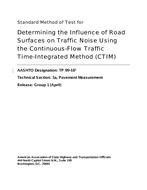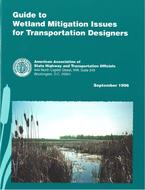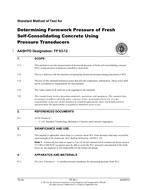The use of detectable warning systems at curb cuts and vehicular ways is mandated as part of the Americans with Disabilities Act. These detectable warning systems are subject to a variety of environmental conditions that can lead to material degradation and reduction in performance. In extreme cases, degradation may occur such that the detectable warning systems become a hazard to pedestrians, for example by becoming a tripping or slip hazard.
This method provides a protocol for testing the durability of detectable warning systems in a repeatable manner. Laboratory exposures and evaluation tests were developed to simulate the types of damage and degradation anticipated in service. Exposures are conducted cyclically to allow for effects of combined interaction of the simulated environmental exposures. Nondestructive evaluation tests are conducted both before and after exposures to provide comparative values. Destructive evaluation tests are conducted after the exposures.
The primary objective of this test method is to provide a repeatable set of tests that can be conducted specifically to evaluate durability of detectable warning systems. Each test is suitable for use with any type of detectable warning system, regardless of the material composition or method of attachment. Specimens are attached to concrete slabs to provide a test of the detectable warning system/sidewalk system. Data produced following this method is anticipated to be used for purposes of determining product durability and product comparison.
Product Details
- Published:
- 2018
- Number of Pages:
- 53
- File Size:
- 1 file , 4.2 MB
- Note:
- This product is unavailable in Ukraine, Russia, Belarus





